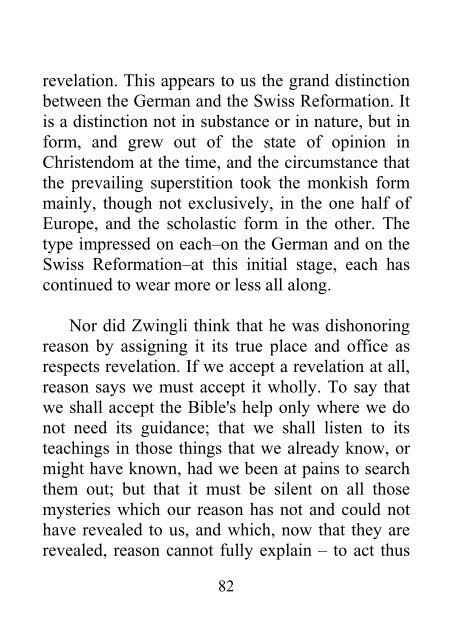In Switzerland from 1516 to 1525 - James Aitken Wylie
- No tags were found...
Create successful ePaper yourself
Turn your PDF publications into a flip-book with our unique Google optimized e-Paper software.
evelation. This appears <strong>to</strong> us the grand distinction<br />
between the German and the Swiss Reformation. It<br />
is a distinction not in substance or in nature, but in<br />
form, and grew out of the state of opinion in<br />
Christendom at the time, and the circumstance that<br />
the prevailing superstition <strong>to</strong>ok the monkish form<br />
mainly, though not exclusively, in the one half of<br />
Europe, and the scholastic form in the other. The<br />
type impressed on each–on the German and on the<br />
Swiss Reformation–at this initial stage, each has<br />
continued <strong>to</strong> wear more or less all along.<br />
Nor did Zwingli think that he was dishonoring<br />
reason by assigning it its true place and office as<br />
respects revelation. If we accept a revelation at all,<br />
reason says we must accept it wholly. To say that<br />
we shall accept the Bible's help only where we do<br />
not need its guidance; that we shall listen <strong>to</strong> its<br />
teachings in those things that we already know, or<br />
might have known, had we been at pains <strong>to</strong> search<br />
them out; but that it must be silent on all those<br />
mysteries which our reason has not and could not<br />
have revealed <strong>to</strong> us, and which, now that they are<br />
revealed, reason cannot fully explain – <strong>to</strong> act thus<br />
82

















